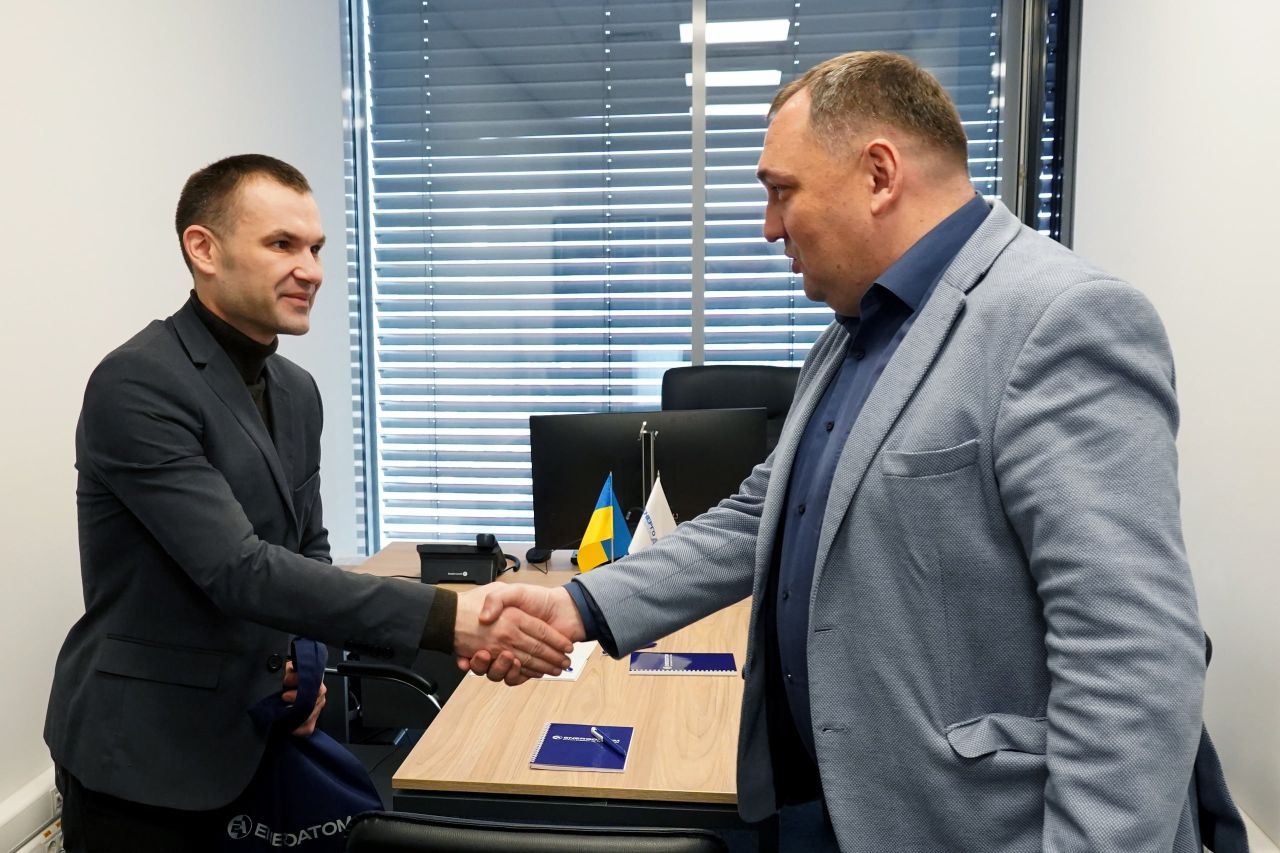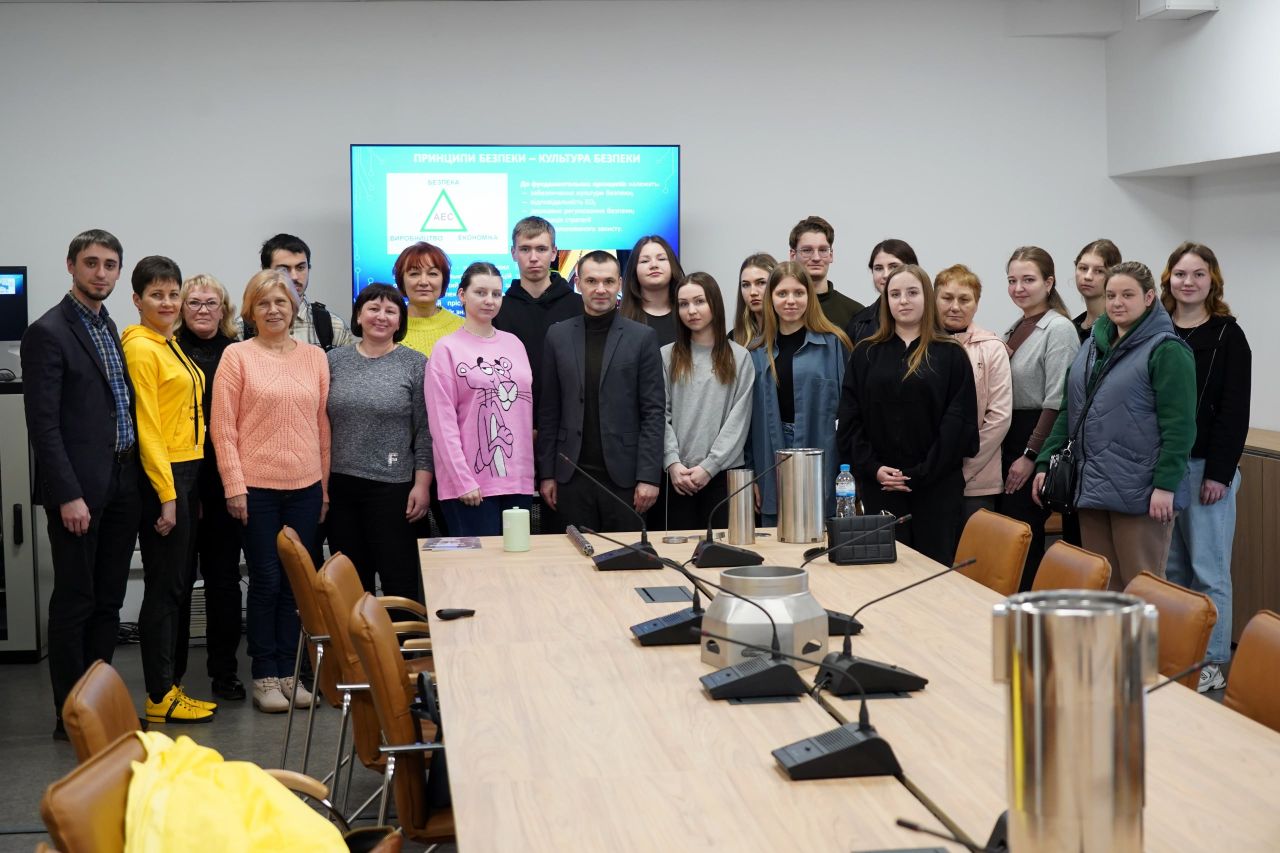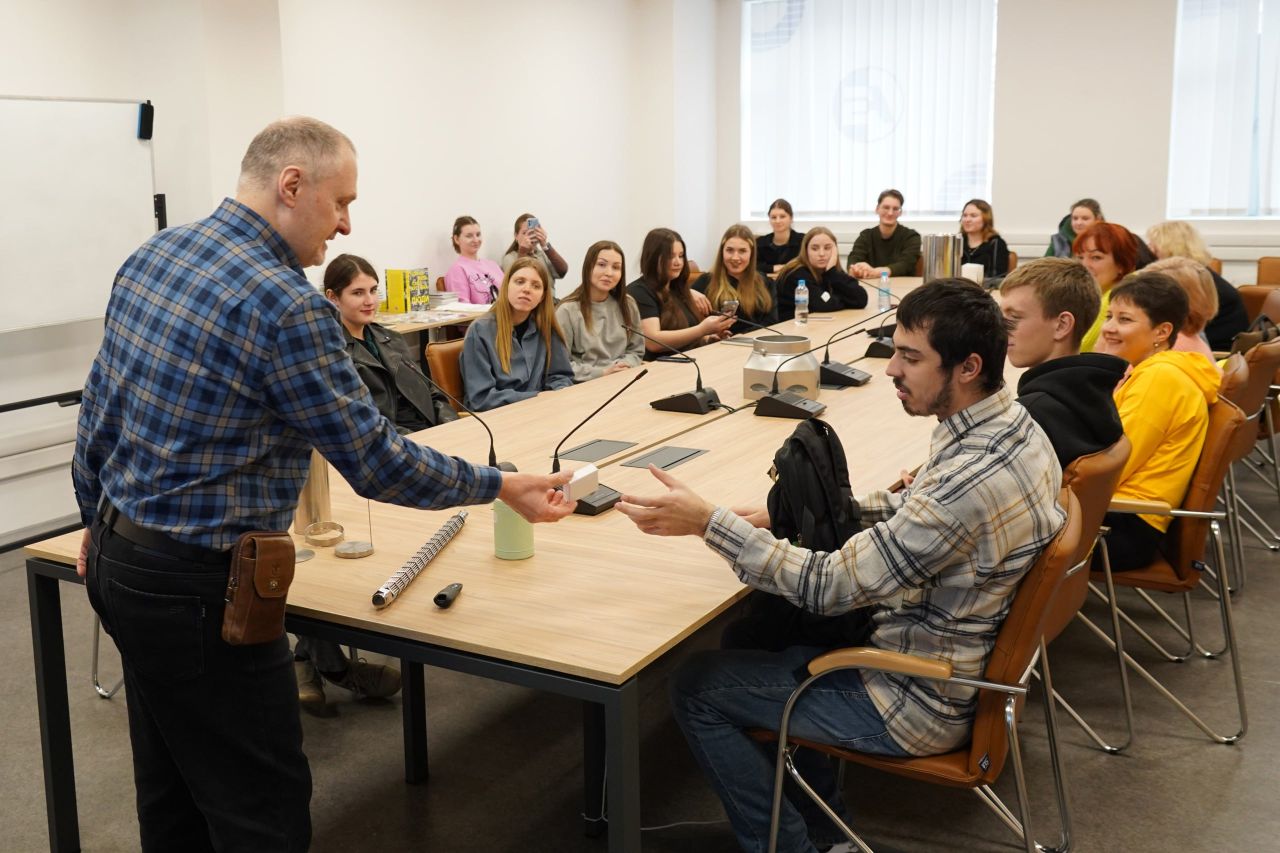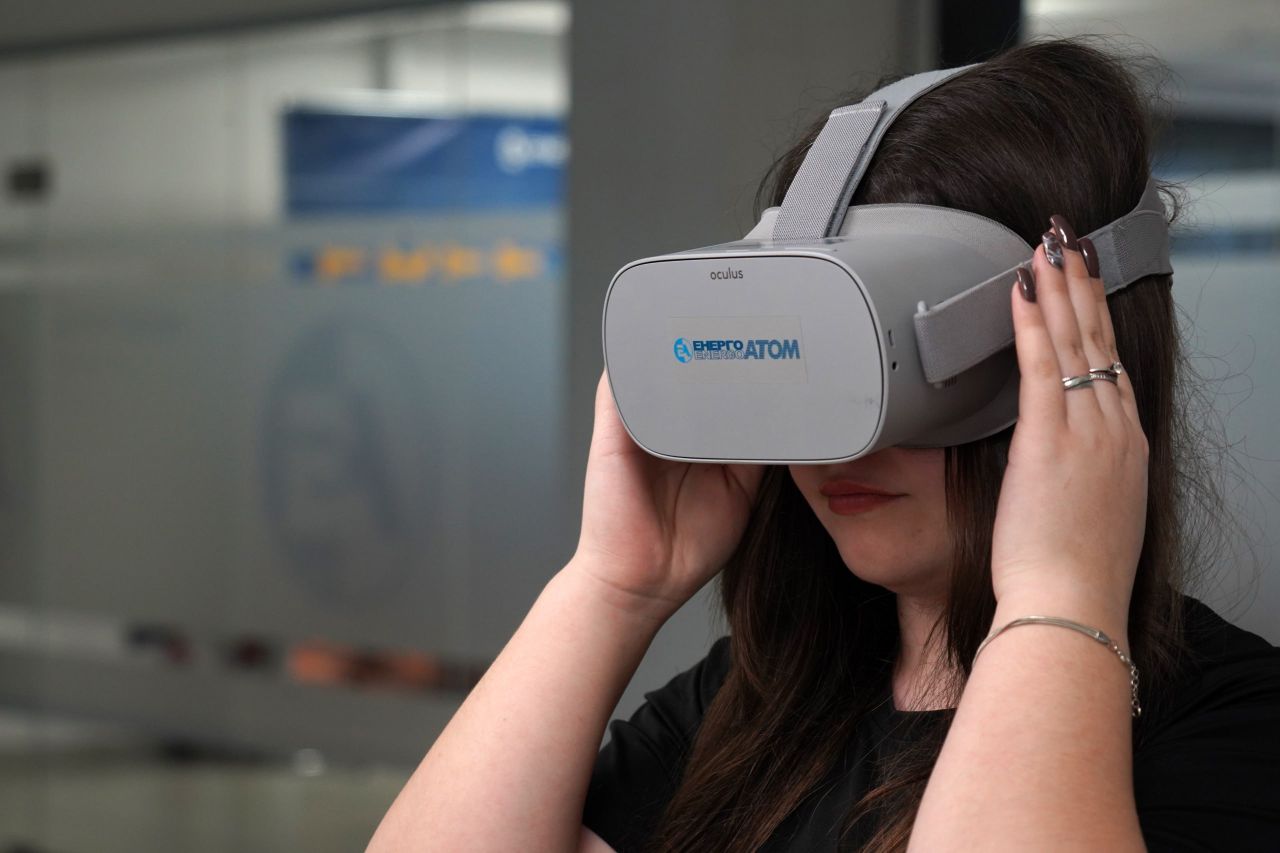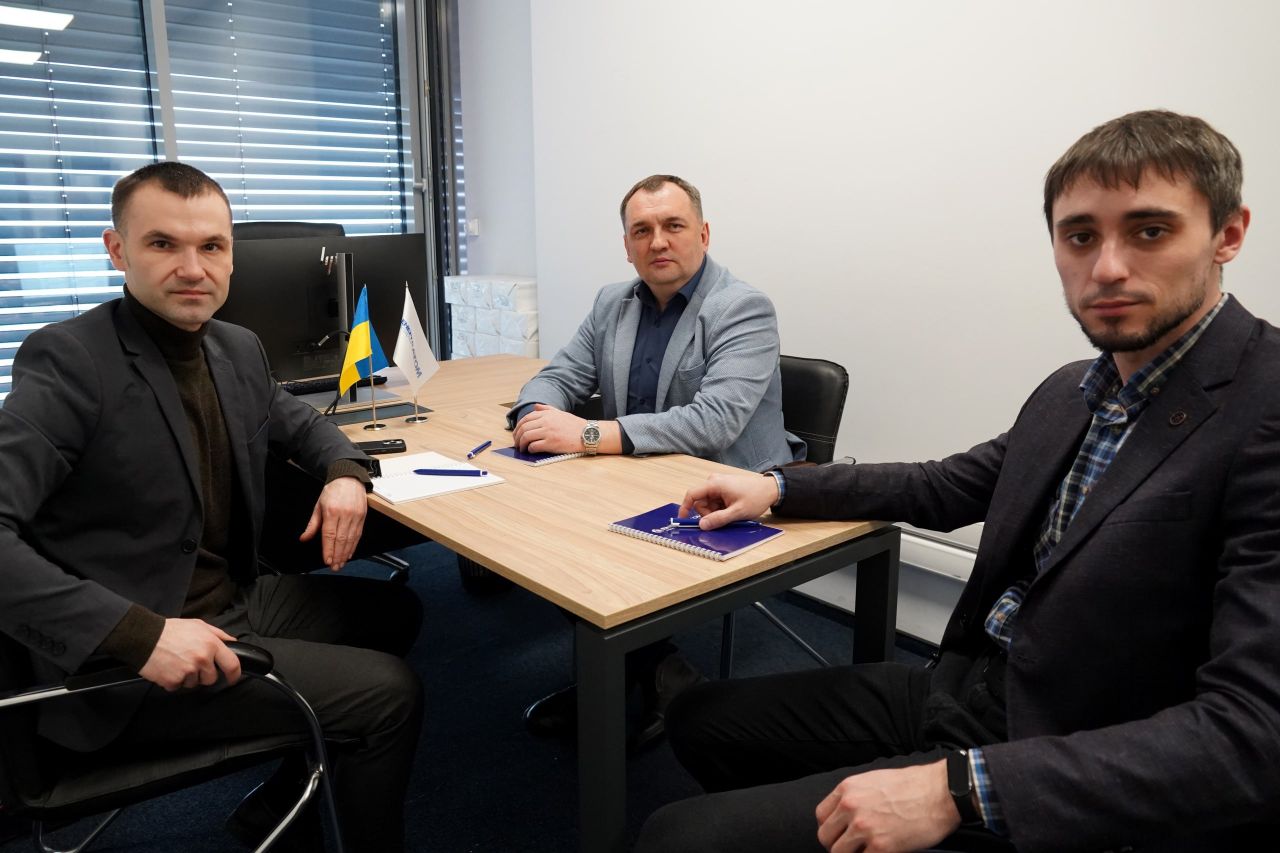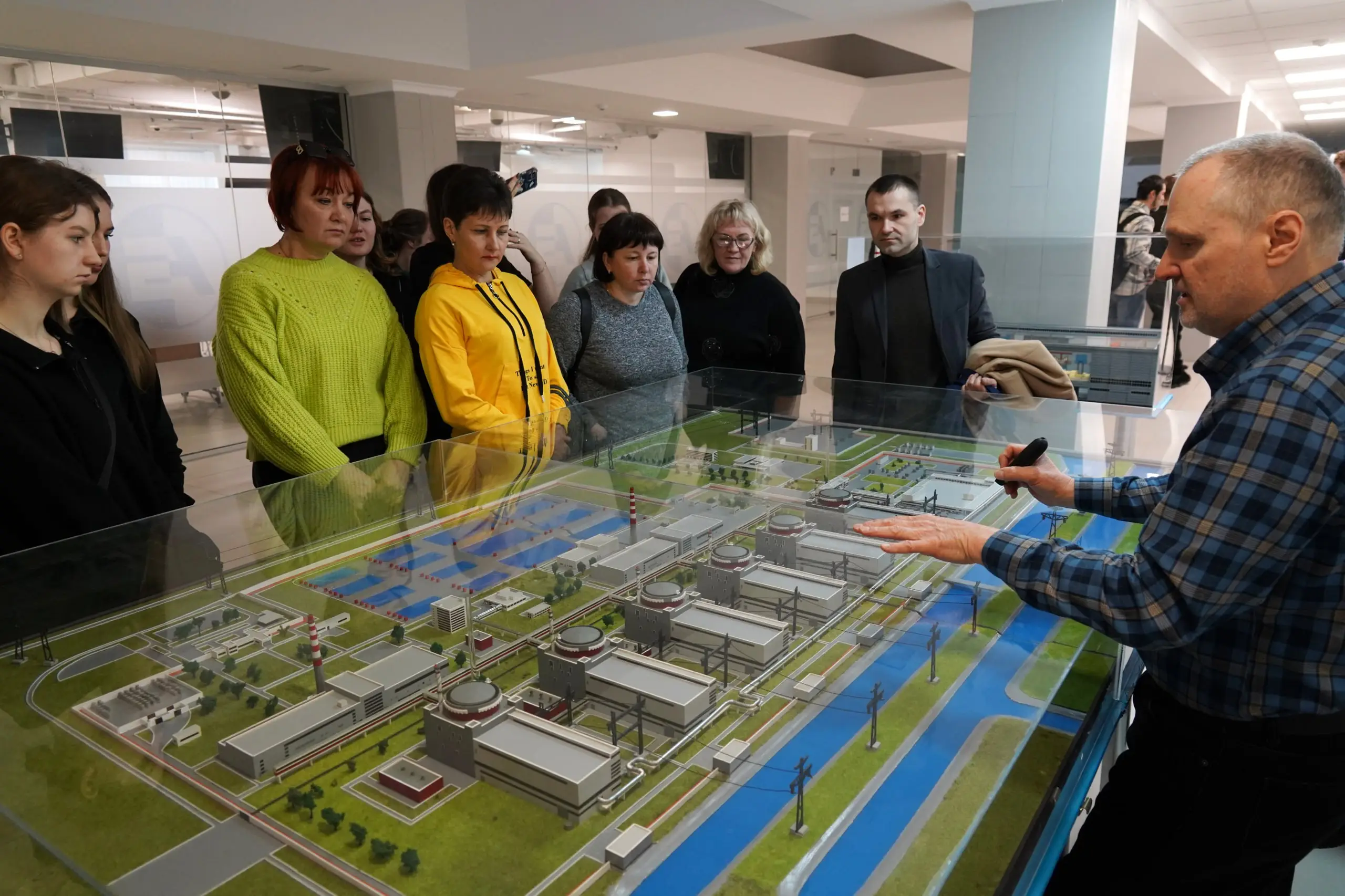
NNEGC “Energoatom” hosted a meeting of the Company specialists with students and professors of the Natural Sciences Department of Hryhorii Skovoroda University in Pereiaslav. Although the University focuses on the humanities and natural sciences, it demonstrates interest in the nuclear industry, since its development is closely related to environmental safety, economic stability and new technologies.
The event became a great opportunity for young people not only to hear professional explanations about the role of the nuclear industry in reducing carbon emissions, but also to see modern technologies with their own eyes. The participants did not just listen to lectures – they immersed themselves in the nuclear world with the help of virtual reality, large-scale models and an interactive survey.
Among the important topics for discussion were the following: operation of nuclear power plants in wartime, radwaste and spent fuel management, impact of different NPP types on the environment, as well as the difference between one- and two-circuit NPPs and between vessel and channel reactors.
The meeting was beneficial for both Energoatom and the University. For students, it was an opportunity to understand how they can make their contribution even in an industry that seems far removed from their main field of activity.
Bohdan Shmyhelskyi, Executive Director for Human Resources of NNEGC “Energoatom”, discussed the opportunities for further cooperation, which opens up new prospects for students who wish to apply their knowledge in the power field, with Viktor Kotsur, Rector of Hryhorii Skovoroda University, and Yurii Kozubenko, Dean of the Faculty of Natural Sciences.
Nuclear power industry is not only about physics and technical solutions. It is also international policy, ecology, security, and innovations. Owing to such meetings, students have the opportunities to find their place in the power sector, participate in solving current problems, and become part of significant changes in the efforts for a clean, carbon-free future for our planet.
